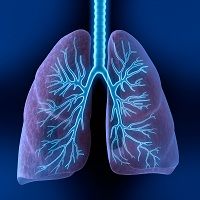Article
Anxiety and Depression in Adults with Cystic Fibrosis
Author(s):
Researchers report a diagnosis of cystic fibrosis does not increase the risk of anxiety and depression.

A diagnosis of cystic fibrosis (CF) does not increase the risk of anxiety and depression, according to recent research by Lena Backstrom-Eriksson of the Department of Clinical Neuroscience, Division of Psychology, at the Karolinska Institute in Sweden, and several colleagues. Their work was published in BMC Pulmonary Medicine in October 2015.
The study, which is part of the Swedish contribution to The International Depression/anxiety Epidemiological Study (TIDES), aimed to “compare data on the prevalence and degree of anxiety and depression among the Swedish CF patients with corresponding Swedish population data.” A secondary goal was to compare depression data from CF patients in Sweden with that of CF patients in other countries.
There were 129 participants in the study. All had confirmed CF diagnoses, and 50% were women. Researchers followed the existing TIDES protocol to recruit participants, who were asked to complete the Hospital Anxiety and Depression Scale. The comparison countries were chosen based on whether or not similar data existed for them.
Past studies seemed to indicate that the risk for anxiety and depression was greater for CF patients; however, when considering all of the data collected “the present findings suggest no elevated risk for anxiety/depression in CF patients compared to their respective general populations.”
There were some results that the researchers say should be “interpreted with caution.” For example, in Sweden, adult CF patients did have an elevated degree of anxiety, but not in the other three countries examined. Also, those results did not hold true when the researchers performed “the logistic regression analysis, and the significant effect revealed in the ANOVA was very weak.”
Additionally, the Swedish women participants reported “a higher degree of anxiety than did the women in the general population.” A similar, recent study in the UK showed the opposite, that men with CF suffered more anxiety compared to healthy subjects.
The researchers list several limitations to this study, including the possibility of selection bias, methodological issues, and the use of existing HADS data instead of matched control subjects. Taking the limitations and conflicting results of this study into consideration, the researchers concluded that further study is necssary.




